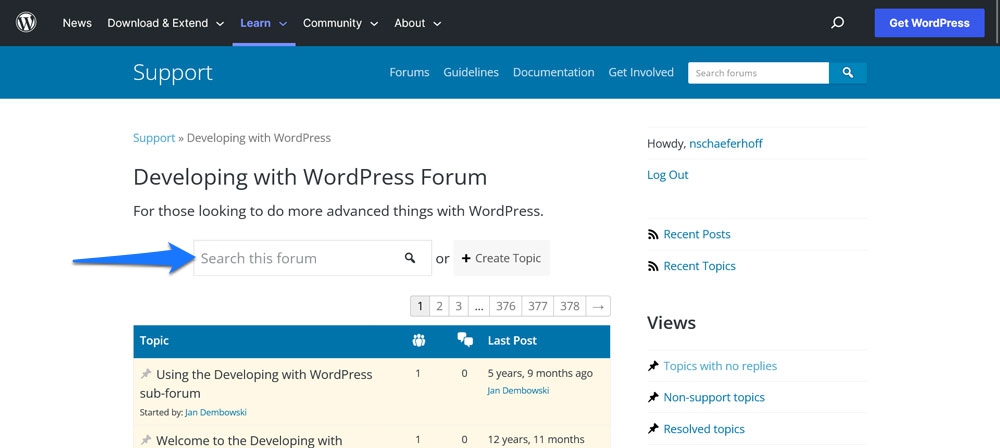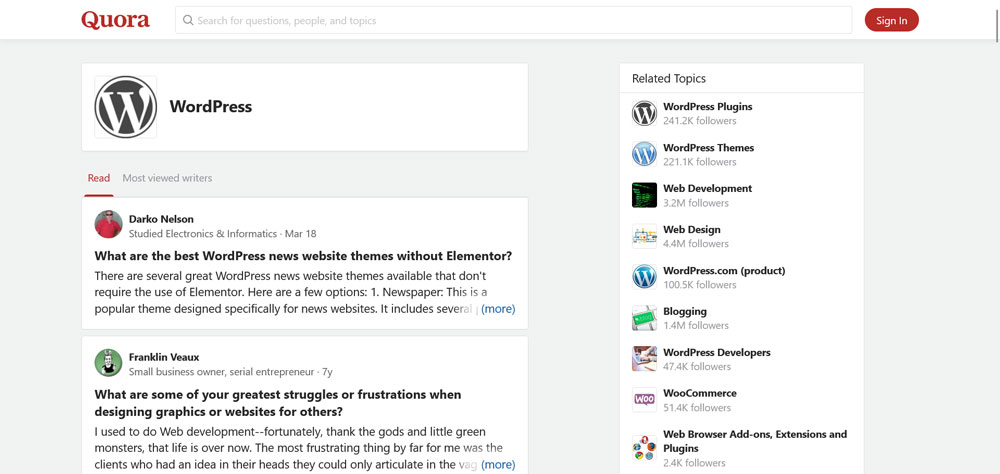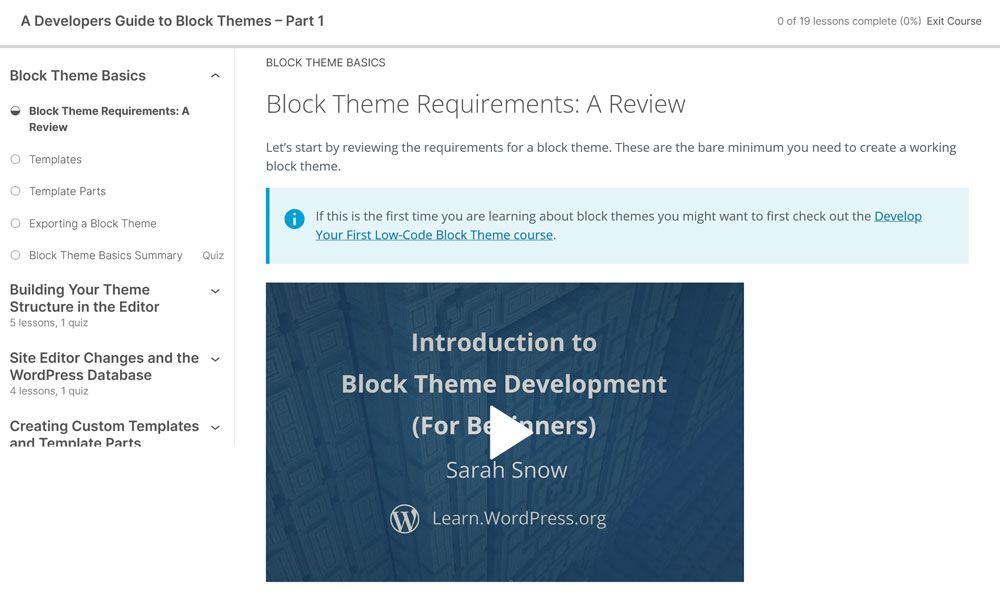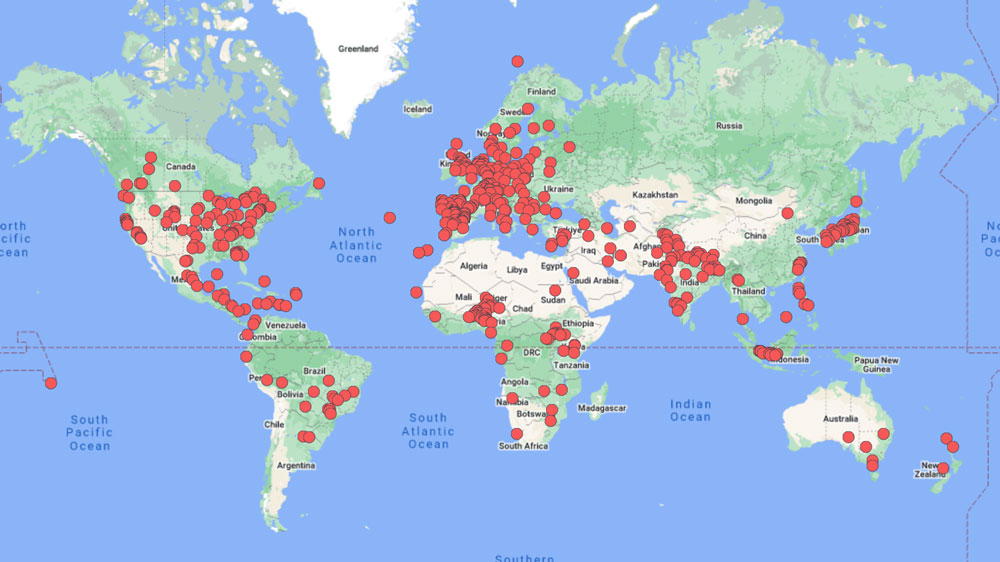When you are just getting started with WordPress, one of the most important skills is to learn where to find help.
While the platform is accessible and beginner friendly, there is still a lot to figure out. Installing, configuring, content creation, security, performance — these are just some of the things that you have to get familiar with.
So, how and where do you get your questions answered as a beginner?
That’s exactly what this article is about. Below, we list useful resources that you can turn to in order to find help with your WordPress inquiries and to learn more about how to use the platform.

1. Q&A Forums: Get Help From Other WordPress Users
In your quest to learn more about WordPress, one port of call to find support are forums. Here, you can ask any question related to WordPress and have it answered by other users or even specific people who work for the forum. Several of these kinds of options exist.
WordPress.org Support Forum
One of the most important resources for WordPress support are the official forums. Besides other content on WordPress.org, like the documentation, it’s one of the places where you can most easily find help.

The forums are divided into different topics and trawled by volunteers who spend their time giving a helping hand to help seekers. They also exist in different languages.

You have two different options here: either search the forums for an existing answer to your problem or ask your own question. For the latter, you need to create a (free) account and log in. However, since WordPress has been around for a while (20 years, baby!) chances are good that someone else has run into the same issue as you before and already asked it. For that reason, it’s always good to start with a search.

If the WordPress.org search does not show up anything satisfactory, you can also try a Google site: search, e.g. site:https://wordpress.org/support/. This will only show results for your keyword from the WordPress support URL.

If you still can’t find what you are looking for, the option to ask your own question still exists. To do so, simply click on the Create Topic button at the top of the subforum you want to post in. Make sure to be logged in to do this.

This takes you to this form:

Input a title, optionally a link to your website, include a description of your problem, and add some relevant tags. Then, post and wait for replies. Be sure to supply any additional information other users might ask of you (except for anything sensitive) and to be nice to those who are trying to help.
By the way, if you are looking for help with specific themes or plugins, those have their own support sections where you can talk directly to the developers. You get there via the View support forum buttons on the plugin and theme pages respectively.

Third-Party Forums
Besides the official support forums, there are a bunch of other online communities where you can turn to for help:
- Stack Exchange — Mostly for developers, therefore, it’s best suited for very technical questions. This forum also a great starting point to find existing answers and code snippets. Also check out the Stack Overflow WordPress forum, which is very similar.
- Reddit — The front page of the Internet comes with communities for pretty much any topic. Unsurprisingly, WordPress is among them. The most popular subreddits to check out are /r/Wordpress/, /r/ProWordPress/, and /r/WordpressPlugins/.
- LinkedIn — This professional social network also has some groups you can turn to to find WordPress help. They include WordPress Experts, WordPress Web Designers, and WordPress Developers.
- Facebook — You can find helpful WordPress communities on Facebook as well. Advanced WordPress, WordPress Help, and WordPress. are just a few examples. You can find more with a search, often groups that focus on specific topics such as performance, security, SEO, and more.
Another option you can check out is Quora, which is a popular Q&A forum where users vote on answers.

WordPress Slack Channel
The WordPress project also has an official Slack channel that anyone is free to join. However, and I can’t stress this enough, this is not a technical support channel. If you have general questions about how the WordPress platform works or how to achieve something on your website, stick to the support forums mentioned above.
However, if you want to become part of the WordPress project and contribute to it, Slack is where the real-time communication for all of that happens. The channel has channels for the different areas and topics, from core development over polyglots to marketing. There are also channels for WordCamps.

All you need to do to join is go to the Slack main page and create an account. For that, be sure that you are logged into your WordPress.org account. That way, the Slack page will automatically create a new account for you. It will also send the login code to the email address associated with your WordPress.org profile.
Once joined, you can subscribe to any channel and work together with thousands of others to make WordPress even better. Another Slack channel you can check out is WP Developers Club, which is a community for WordPress code wranglers.
2. Online Publications and WordPress Blogs
There seems to be one place you can go to find help with WordPress that you are already familiar with. After all, you are reading this on one of the many available blogs that post helpful tutorials about the WordPress platform online.
In fact, one of the best things about WordPress’ popularity is that there is a lot of content related to it out there.

Most larger WordPress hosting providers as well as plugin and theme makers have their own blog where they share useful knowledge about the platform they are providing products for. In addition, there is a whole number of blogs who fully focus on WordPress as their main topic. For that reason, a simple Google search pretty much always lets you find help for any topics you are looking for assistance for.
3. WordPress Classes and Online Courses
In addition to the options above, where you can get ad-hoc help for when you don’t know how to continue, there are also WordPress support resources that teach you how to use the platform in a more front-to-back manner.
learn.WordPress.org
This address above is the official WordPress learning resource.

It consists of tutorials, online workshops, courses, and lesson plans. Let’s go through each of them one by one.
Tutorials
In the Tutorials section, you find video presentations for all sorts of WordPress topics. They range from how to add a site logo to a block theme over migrating your site to another host to using the WordPress REST API.

The cool thing is, you can use the drop-down menus at the top to filter for exactly the kinds of topics that are interesting to you:
- Series — Find videos that belong topically together, for example, developing for the block editor or managing WordPress settings. This filter also includes topic clusters in different languages.
- Topic — Pick the topic you are most interested in, such as block development, CSS, or security.
- Language — At the time of this writing, video tutorials are available in 14 different languages.
- Subtitles — If your desired language of choice is not available, you can still check if you there are videos with subtitles you can understand.
- WordPress Version — Finally, this filter allows you to look for video tutorials that apply to specific WordPress versions.
Online Workshops
Members of the WordPress community regularly hold online workshops on a variety of topics. The accompanying page lists them in the form of a convenient calendar.

If you find something that you are interested in, click on the event to get to its dedicated page. There, you can register for and attend the workshop (it’s organized via Meetup.com).
In case you can’t make it or missed a workshop you are interested in, you can also find recordings on WordPress.tv.
Courses
In addition to the above, learn.wordpress.org also offers a number of online courses on different topics. You find them in the menu of the same name.

The content here is divided into different categories that you can jump to with the links at the top. There is also a search field in order to look for a particular topic.
Each course has a description for what it is about as well as the number of lessons it includes. When you find something you are interested in, simply click on it to get to the course homepage.

Here, you find a more detailed description and an overview of the course lessons at the bottom. There is also a Practice on a private demo site button. It takes you to a virtually spun-up WordPress website in which can practice what you learn in a sandbox environment.

Click on one of the lessons or the Take Course button to get started. The courses themselves happen in their own LMS with a different interface.

They come with descriptions, demos, code examples, quizzes and a lot more.
Lesson Plans
The final thing learn.wordpress.org offers are lesson plans.

They are available on different topics and intended for those who want to teach WordPress to other people.
How does help you? After all, aren’t you here to learn where to find WordPress help, not provide it?
True, however, when you click on any of the topics or other options available on the page, you see that they lead you to a collection of existing educational content on the site.

If your goal is not to help others improve their skills (yet), who’s to say you can’t use those lessons plans for yourself? Exactly.
Other Options
Aside from the official and free resources, there are also a number of commercial offers that you can take advantage of. They include:
Plus, you can find plenty of free tutorials and online classes regarding WordPress on YouTube. Here’s just one example:
4. The WordPress Community: Learn From and With Others
WordPress is a community effort. Built and maintained by a huge host of volunteers, it only makes sense that you can use the community aspect to learn more about it and find help for your WordPress questions.
Meetups
One of the first addresses here are WordPress meetups. They now exist in many places of the world, 115 countries to be exact.

The cool thing is, you can very easily join them via Meetup.com, where the above map is also from. That’s also where the WordPress.org site links to under Community > Meetups.

You can find both online and in-person events listed. Simply sign up and join with a free account!
These groups and events is where you can find others who are interested in WordPress, build contacts, ask questions, share your experience, and find help. It especially makes sense to look into local groups that meet in real-life. Face-to-face is often much easier to really get to know people and find more direct support.
By the way, you can also find information about upcoming local events in the WordPress dashboard. Unless you have removed it via the screen options, the WordPress Events and News widget shows you a list of upcoming meetups in your area including clickable links for more information.

WordCamps
As far as meetups go, WordCamps hold a special place. They are a more organized format of get-together with presentations on different topics relevant to the WordPress ecosphere.
The highlights every year are, of course, WordCamp US, WordCamp Europe (you can get an impression of past WCEU events here, here, and here), and, since 2023, WordCamp Asia.

Those three regularly attract thousands of visitors and allow you to connect to WordPress enthusiasts from allover the world in person.
However, besides these giant WordCamp editions, smaller WordCamps are happening globally year round. You can find those in WordCamp Central, which has a running list of camps near and far from you.

So, if you want to get your feet wet when it comes to the event experience, this is an easy way in. I, for one, first attended WordCamp Berlin before the European edition became a yearly staple for me.
Contributor Day
Something that deserves special mention when it comes to where to find WordPress help at WordCamps is the Contributor Day. These typically happen one day before the conference part and they are open to anyone who wants to contribute to WordPress.
Even if you don’t have any experience or coding skills, you can simply register, show up, and work together with others to make WordPress better. At the same time, you can learn more about the WordPress project.
The day is led by different teams, such as accessibility, community, core, documentation, marketing, and polyglots. There are workshops for first-time contributors and you can help in the form of bug tracking, translation, writing documentation, and more.
Where Else Do You Go to Find WordPress Help?
Knowing where to turn to is half the battle when it comes to learning anything new. In the case of WordPress, there are many places you can go to seek support. Above, we have listed a number of them.
So, where is the best way to find WordPress help in your particular case?
- For general knowledge, e.g. a guide to WordPress security, focus on publications and blogs.
- When dealing with more technical and specific issues, use forums such as Stack Exchange or the official WordPress support forums.
- If you want to learn WordPress in a structured and top-to-bottom fashion, turn to the resources on learn.wordpress.org and other online courses.
- To learn together with others and become a part of the project and the people that power it, make sure to attend events.
Of course, you can also use a mix of the above and probably will do so automatically on your WordPress journey. We hope we can be a part of it.
What’s your favorite kind of support resource to find help with WordPress? Let us know in the comments below!

1 Comment